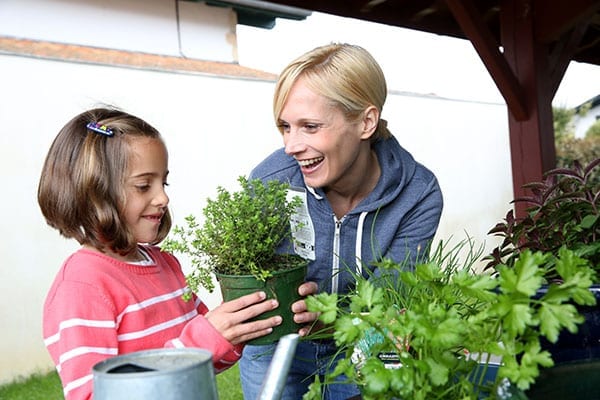Growing herbs is a fun and rewarding experience that is also good for your health. Culinary options such as rosemary, basil and oregano add delicious flavor to meals while lavender, chamomile and many more aid in sleep and other ailments. Here are some expert tips for growing herbs:
Planting Herbs:
Use a delicate touch when planting and transplanting. Always be careful not to disrupt the roots to agressively. If planting in a pot, choose a planter no more than 2 inches larger than the original pot.
Watering Herbs:
Water is the number one killer of herbs! Never use a hose or faucet to water herbs. A small watering can without a diffuser is best. Remember to be gentle. To check if your hebs need water stick your finger about an inch down into the soil. If it feels dry, water. If it feels moist, not not water. If you are not sure wait and check again tomorrow.
Using Herbs:
Herbs are happiest when picked often. Cut them regularly to encourage growth and prevent the development of woody stems. Herbs that are left to flower often lose their pungent flavor.
Light Requirements:
Herbs need good light to grow. If you don’t have good natural light, invest in a plant light if growing indoors.
Fertilizing:
You are what you eat, so choose an all-natural organic fertilizer to promote growth. Follow the instructions on the container for best results.

Types of Herbs:
Perennial: Comes back every year. Perennial herbs tend to get woody stems over time.
Tender Perennial: May or may not survive winter in our area. Can be grown outside in pots in spring and summer and brought back inside for fall and winter. Most tender perennials should be brought inside for winter.
Biennial: Lives and grows for 2 years. The first year it produces foliage. The second year it produces fruit and/or flowers. Then it dies.
Annual: Grows in one season. After the season is over they die. Most herbs will do best indoors if given a well-lit location away from cold drafts and heating vents. Visibility is also important. Placing herbs where you will see them regularly means you will probably use them more often.
Remember:
Use your herbs often and if they start looking poorly, discard them and get a new herb. It doesn’t mean you have failed as a gardener.
